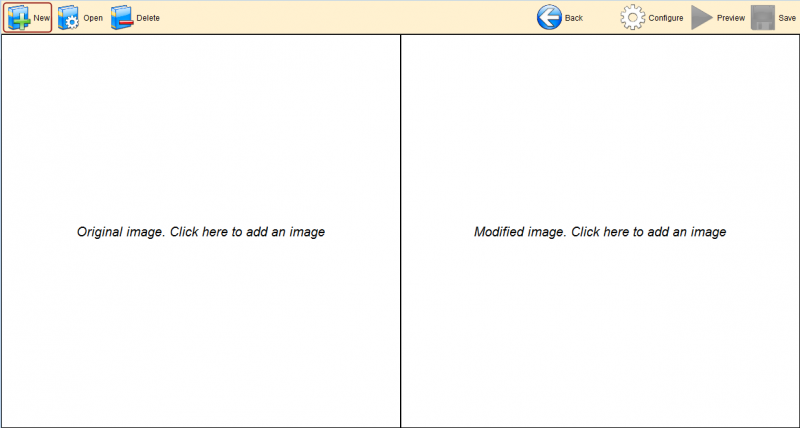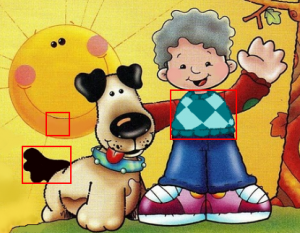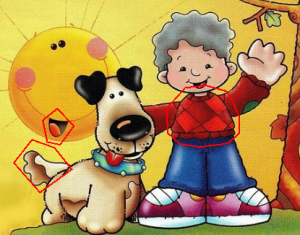Differences editor
From PatioWiki
Contents |
Exercise type selection and initial configuration
Once you have selected the Attentional Strategy group, you have to select the Differences exercise type at the Exercise type section.
In order to manually create the exercise you have to select the Manual option at the bottom of the panel. Next, the Initial options panel will appear in order to select the initial options for the new exercise:
- Exercise language.
The next image shows the main panel of the Differences manual editor.
First of all, you have to select the images that you want the pupil to compare during the exercise execution:
- Original image: The original untouched image.
- Modified image: The original image with some modifications, the ones the pupil has to find.
In order to select an image you have to press the main button of the mouse over one of the two boxes of the last image. It will open a new window where you have to select the image.
Note: The Original image and the Modified image have to be in the same resolution.
After selecting the images, the Differences editor will appear. You can see the aspect of this editor in the following image (some differences have been already added to the exercise).
How to use it
Changing an image
- Press the right button of the mouse on either of the two areas of the images.
- Select the Change image option.
- Select the image to finish.
Note: The two images have to have the same size.
Adding a new difference
In order to select a section of the picture that contains a difference you can follow two different ways:
- Option 1: Select by rectangle
- Press and hold the main button of the mouse on either of the two images
- Move the mouse to the right or down in order to select the desired area.
- Release the left button of the mouse.
- Confirm the operation.
- Option 2: Select by polygon
- Press the left button of the mouse on either of the two images in order to enter the first point of the polygon.
- Enter the remaining points using the same procedure of the last point.
- When you have already entered all the points of the polygon, press the right button of the mouse over any place of the images.
- Confirm the operation in the new window.
- The first point will be joined with the last one and the new difference will be added to the exercise.
Removing a difference
- Press the right button of the mouse over the difference that will be removed..
- Select the Remove difference option.
- Confirm the operation.
Removing all differences
- Press the right button of the mouse in any place.
- Select the Remove all differences option.
- Confirm the operation.
Exercise configuration
To configure the exercise you have to press the Configure button located at the upper toolbar of PATIO.
The next image shows the aspect of the exercise configuration panel.
This panel allows you to set the exercise general settings.
- Main data: Common data for all APRENDO exercises.
- Exercise name: A required field that sets the name of the exercise that is being edited.
- Sentence: Sets the sentence associated with the exercise.
- Mode: Sets the exercise mode: Evaluation or Learning.
- Sentence: This sound is played at the beginning of the exercise.
- Correct: This sound is played when the pupil clicks a correct pair.
- Incorrect: This sound is played when the pupil clicks an incorrect pair.
- Farewell: This sound is played at the end of the exercise.
The general sounds (Sentence, Correct, Incorrect and Farewell, are managed as it is described in the following link:
Preview and save the exercise
To read more about these functions you have to follow these links:





